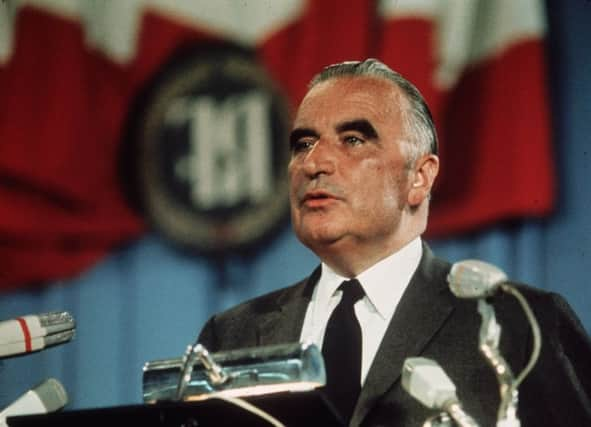On this day: Georges Pompidou became president of France


15 JUNE
1215: King John put the Royal seal on Magna Carta at Runnymede, near Windsor.
1567: Earl of Bothwell, defeated at Battle of Carberry Hill, escaped to Norway, but Mary Queen of Scots was taken captive.
Advertisement
Hide Ad1744: Admiral George Anson returned to Spithead in the Centurion, after circumnavigating the globe in three years and nine months.
1804: The Twelfth Amendment to the United States Constitution was ratified, dealing with the manner of choosing the president and vice-president.
1846: The 49th parallel was established as the border between Canada and the United States.
1855: Stamp duty on newspapers was abolished.
1860: Florence Nightingale started her School for Nurses at St Thomas’s Hospital, London.
1864: Arlington war graves cemetery was established near Washington.
1910: Captain Scott set out on his second and fatal expedition to the South Pole.
Advertisement
Hide Ad1919: John Alcock and Arthur Whitten Brown completed the first non-stop transatlantic flight from Lester’s Field, St John’s, Newfoundland, to Derrygimla Bog, County Galway, in a Vickers Vimy in just over 16 hours.
1952: Anne Frank’s diary was published, eight years after she went into a concentration camp to die. Her father was the only member of her family to survive the war.
1969: Georges Pompidou became president of France.
Advertisement
Hide Ad1977: Spain had its first general election since 1936, resulting in victory for Democratic Centre Party.
1982: Falklands Task Force leader, Major-General Jeremy Moore, arrived at Port Stanley and accepted formal Argentine surrender.
1992: The government announced the Royal Navy would scrap all its nuclear weapons except for Trident.
1995: Former Liverpool and Rangers manager Graeme Souness was awarded £750,000 libel damages over a newspaper article in which his ex-wife called him “tight-fisted” and a “dirty rat”.
1996: More than 200 people were injured when an IRA bomb wrecked the centre of Manchester, packed with Saturday shoppers.
2002: Near-Earth asteroid 2002 MN missed the Earth by 75,000 miles, about one-third of the distance between the Earth and the Moon.
Advertisement
Hide Ad2010: The long-awaited Saville Inquiry into the Bloody Sunday shootings concluded that British paratroopers opened fire on unarmed civilians as they tended the wounded on that fateful day (30 January, 1972). The 14 people who were killed were exonerated in the report.